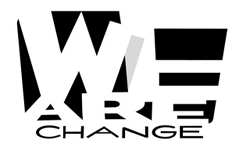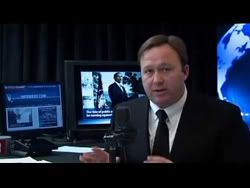Leaked files indicate U.S. pays Afghan media to run friendly stories
Yahoo News
Buried among the 92,000 classified documents released Sunday by WikiLeaks is some intriguing evidence that the U.S. military in Afghanistan has adopted a PR strategy that got it into trouble in Iraq: paying local media outlets to run friendly stories.
Several reports from Army psychological operations units and provincial reconstruction teams (also known as PRTs, civilian-military hybrids tasked with rebuilding Afghanistan) show that local Afghan radio stations were under contract to air content produced by the United States. Other reports show U.S. military personnel apparently referring to Afghan reporters as "our journalists" and directing them in how to do their jobs.
Such close collaboration between local media and U.S. forces has been a headache for the Pentagon in the past: In 2005, Pentagon contractor the Lincoln Group was caught paying Iraqi newspapers to run stories written by American soldiers, causing the United States considerable embarrassment.
In one of the WikiLeaks documents, a PRT member reports delivering "12 hours of PSYOP Radio Content Programming" to two radio stations in the province of Ghazni in 2008, and paying one of them "$3,900 for Radio Content Programming air time for the month of October":
"The PRT provided 12 hours of PSYOP Radio Content Programming to Radio Ghaznwyan FM Station and Radio Ghazni AM/FM Station for week of 6-12 Nov. Topics included Afghanistan History, Law, and Human Rights in both Dari and Pashto, and a spreadsheet with the specific radio content programming for the week of 6-12 Nov will be forward sepcor to SPARTAN. Additionally, PRT paid Radio Ghaznwyan $3,900 for Radio Content Programming air time for the month of October."
Radio Ghaznawiyaan was established and funded by the Agency for International Development, but USAID has described it in the past as a success story for local independent journalism launched with American help. So its listeners may be surprised to learn that it is an outlet for paid U.S. "PSYOP radio content."
Another message, from 2008, records a meeting that members of the Bagram PRT held with Rahimullah Samander, the news director of the Wakht News Agency and president of the Afghan Independent Journalists Association. Samander, the memo says, "proposed a partnership with the PRT" and "offered to include PRT news articles and photos on his news service":
"Kapisa team met with a Kabul radio representative at the Kapisa TV and Radio Station. Met with Rahimullah Samander, news director for Wakht News Agency and president of the Afghan Independent Journalists Association. He provided information about his organizations and proposed a partnership with the PRT. He offered to include PRT news articles and photos on his news service. The PRT IO recommended a conference including Afghan and US military journalists to collaborate and share ideas. Samander hopes to increase the presence of his agency in Kapisa province."
Another 2008 memo records a similar meeting among psychological operations soldiers, Jalalabad PRT members, and representatives of Radio Television Afghanistan and the Shaiq Network. Both of these news organizations were directly contracted by psychological operations units to air friendly content:
The TF has a new PSYOP contract with RTA and a continuing PSYOP contract with Shaiq Network; additionally, these are key IO mediums. The purpose of the meetings were to introduce new HQ PSYOP members to the RTA and Shaiq managers, provide initial payment for the RTA contract, receive a PRT Advertising Campaign contract bid proposal from Shaiq (for the pending garbage removal initiative in Jalalabad), and tour both facilities."
The report, written by an Army information operations officer, describes the Afghan journalists as "very pro-CF [coalition forces]" and surmises that "there is a lot they are willing to do for the CF."
Two other messages seem to show U.S. soldiers referring to local Afghan media as extensions of their own units rather than independent reporters. In 2007, after insurgents attacked an Afghan National Police convoy, a member of Task Force Rock wrote that "we ... had our journalist conduct an interview with the Afghan National Police District Chief who condemned the attacks on their fellow countrymen." In another 2007 message, a Task Force Diablo soldier reported that after Taliban gunmen assassinated a local businessman, leading village elders to question the Afghan police's ability to keep the peace, "we were able to send the journalist in with our cultural advisor to speak to the elders."
An inquiry after the Lincoln Group revelations found that paying foreign news outlets to run friendly stories did not violate Department of Defense policy or U.S. law, though the practice seems to have been discontinued in Iraq.
A Defense Department spokesperson did not immediately return an e-mail seeking comment.




Currently have 0 comments: